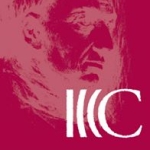1. Name
The institute is named:
International Klaus Reinhardt Institute
2. Form and Location
The Institute itself is a free academic association; it is not a legal entity.
Decisions are taken jointly by those who are concerned with them. Its administrative office is located at the “Kueser Akademie für Europäische Geistesgeschichte” in Bernkastel-Kues, which is commissioned to take over the administration of the Institute.
3. Issues
The International Klaus Reinhardt Institute does not see itself as a competitor to existing institutions; rather, it would like to offer a worldwide platform for better cooperation, especially with regard to Cusanus research. It serves the exchange and coordination, the development of research topics, research formats and mutual information.
The International Klaus Reinhardt Institute has set itself the following tasks:
- to support the international community of Cusanus researchers to the best of its ability,
- to make the respective activities of its members known to others and to support and promote each other mutually,
- to give new impulses to Cusanus research according to topics, tasks, methods, forms and also in all academic and practical areas,
- to make Cusanus research visible in its relevance for thinking and acting in the present,
- not to restrict this research to Cusanus in the narrow sense, but to explicitly include its origin and reception, but also systematic topics in systematic interpretations and comparisons.
The Institute does not take on any projects and tasks of its own in the legal sense. Members can set up projects at the Institute by informing other members.
The Institute chooses suitable forms and ways to implement these tasks.
4. Membership
Founding members are all those societies or associations or members that have signed this cooperation.
Membership is open to other scientific institutions and societies that wish to pursue the scientific objectives of the KRI jointly with the other members. As a tendency, these are institutions that are academically connected with the life and work of Nicholas of Cusa.
In countries or cultural areas where no such institutions exist, up to three Cusanus researchers can be accepted individually as members.
Several institutions from one country or region may be represented.
An application for admission must be submitted informally by a society to a member of the “International Board”. Members of the International Board decide jointly and usually unanimously on new admissions. A member is considered to be admitted if there are no more than four votes against.
5. International Board
The KRI has established an “International Board of Cusanus-Research”. Its role is to jointly implement the above-mentioned tasks. The members of the “International Board” are individuals. Each institutional member shall delegate one person to the International Board as a person designated for membership. These persons must have a doctorate and be active in research. The institutions shall inform the International Board of the name of the person concerned. It is the responsibility of each member to nominate representatives. The way in which assignments are carried out and their durations is regulated by the institutions themselves.
6. Funding
The KRI is first and foremost an idealistic association.
The “Kueser Akademie für Europäische Geistesgeschichte” in Bernkastel-Kues is responsible for the administration and maintenance of the homepage.
The members do not incur any costs.
7. Foundation and founding members
The foundation of the International Klaus Reinhardt Institute, took place on 7.11. 2015 during the conference in honour of Mrs. Anna Reuter: “sapientia aedificavit sibi domum- Philosophy of Place with Nicholas of Cusa.” International Cusanus Conference of the Institute of Philosophy of the Cusanus University and the Kueser Akademie für Europäische Geistesgeschichte, in Bernkastel-Kues 6-7 November 2015.
Founding members:
- Centre d’Etudes Supérieures de la Renaissance, represented by Prof. Dr. Luc Bergmans
- Circulo de Estudios Cusanos de Buenos Aires, represented by Prof. Dr. Jorge M. Machetta and Prof. Dr. Claudia D’Amcio
- Cusanus Studien-Zentrum der Universitä Nijmegen / Titus Brandsma Instituut der Universität Nijmegen, Niederlande, represented by Inigo Bocken
- Équipe de recherche sur la mystique rhénans, Universität Lorraine / Metz, Frankreich, represented by Prof. Dr. Marie-Anne Vannier
- Italian Cusanus Society, represented by Prof. Dr. Gianluca Cuozzo
- Japanese Cusanus Society, represented by Prof. Dr. Kazuhiko Yamaki
- Kueser Akademie für Europäische Geistesgeschichte, represented by Prof. Dr. Wolfgang Christian Schneider and Dr. Matthias Vollet (Leitung) / Cusanus Hochschule, represented by Harald Schwaetzer, Deutschland
- Russian Cusanus Society, represented by Prof. Dr. Oleg Dushin (Vorsitzender)
- Representing Poland: Prof. Dr. Agnieszka Kijewska
- Representing Austria: Prof. Dr. Markus Riedenauer
- Society of the Bibliotheca Mystica et Philosophica Alois M. Haas, represented by Prof. Dr. Amador Vega Esquerra
8. Current Members
- American Cusanus Society (US)
http://www.americancusanussociety.org/ - Circulo de Estudios Cusanos de Buenos Aires (AR)
http://www.circulocusano.com.ar - Cusanus Studien-Zentrum der Universitä Nijmegen / Titus Brandsma Instituut der Universität Nijmegen (NL)
- Équipe de recherche sur la mystique rhénans, Universität Lorraine / Metz (FR)
https://ecritures.univ-lorraine.fr/presentation/partenaires/equipe-de-recherche-sur-les-mystiques-rhenans - Italian Cusanus Society (IT)
http://www.cusaniana.unito.it - Japanese Cusanus Society (JP)
- Kueser Akademie für Europäische Geistesgeschichte (DE)
https://www.kueser-akademie.de/ - Martin-Grabmann-Forschungsinstitut für mittelalterliche Theologie und Philosophie (DE)
- Russian Cusanus Society (RU)
- Representing Poland: Prof. Dr. Agnieszka Kijewska (PL)
- Representing Portugal: Prof. Dr. João Maria André (PT)
9. Members of the “International Board of Cusanus Research”
- Prof. Dr. João Maria André (PT)
- Prof. Dr. Inigo Bocken (NL)
- Prof. Dr. Gianluca Cuozzo (IT)
- Prof. Dr. Claudia D’Amcio (AR)
- Prof. Dr. Oleg Dushin (RU)
- Prof. Dr. Agnieszka Kijewska (PL)
- Prof. Dr. Il Kim (US)
- Prof. Dr. Isabelle Mandrella (DE)
- Prof. Dr. Harald Schwaetzer (DE)
- Prof. Dr. Marie-Anne Vannier (FR)
- Prof. Dr. Kazuhiko Yamaki (JP)
10. Contact
Prof. Dr. Harald Schwaetzer
harald.schwaetzer∂kueser-akademie.de
